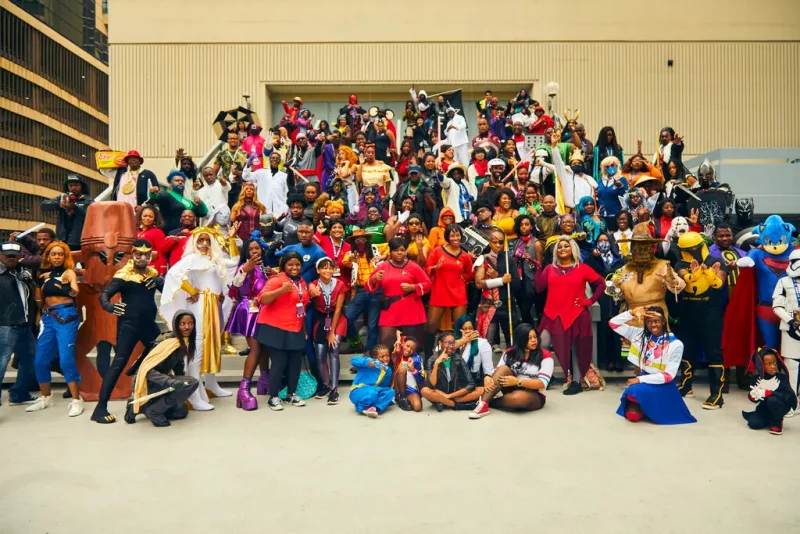Redefining What Nerd Culture Looks Like
Share
Explore Our Galleries
Breaking News!
Today's news and culture by Black and other reporters in the Black and mainstream media.
Ways to Support ABHM?
By Eden Weingart, New York Times
Dragon Con has transformed from a niche science fiction convention into a diverse celebration of fandom.

Sonic the Hedgehog, Storm, a blue-haired Green Lantern and several Knights of Wakanda posed on the steps of the Hilton Hotel in Atlanta for a photo on Sunday afternoon of Labor Day weekend. They had come together for Dragon Con, a distinctly Southern take on the modern multigenre convention where the rules include always saying “please” and “thank you” and the beverage of choice is sweet tea.
In this world, conventions, or cons, are large-scale events where fans of a particular interest gather to hear panel discussions, meet others with similar passions and often dress up as characters. When they first began in the 1980s, they traditionally focused on a single topic, like science fiction books or comics, and didn’t leave room for overlap between fandoms. The audiences at these cons were also similarly homogeneous.
“A lot of the panels, early on, at a lot of sci-fi conventions, were, let’s be honest, four or five white men up there talking about things,” said Channing Sherman, who has been attending Dragon Con for over a decade.
Dragon Con was founded in Atlanta in 1987 on the then-radical idea of combining a science fiction convention with a gaming convention for people who enjoyed both. It attracted 1,200 fans the first year. The idea caught on, with the convention expanding to include dozens of topics like video games, anime and comics. Over the decades, attendance grew: On Labor Day weekend, Dragon Con drew an estimated 65,000 people to downtown Atlanta. As it has grown, the con has begun to more closely reflect the diversity of the city it calls home.
Cree Michelle Pringle, 30, an Atlanta native, has been attending Dragon Con since she was in high school. “There was always this disconnect between me and my Black friends when it came to being a nerd,” she said. “That wasn’t cool. You weren’t supposed to like comic books and anime. I needed to find people of my skin color who liked what I liked. When I started going to cons, I was like, ‘Oh my gosh, these are my people.’”
[…]
In recent years, Dragon Con has made an effort to broaden its scope. A diversity track has been added to the programming that features panels on cosplay and disability, dealing with hate as a cosplayer, and representation in fantasy media.
“As a kid, I didn’t see as much variety or diversity of Black women,” Ms. Pringle said. “I want to make sure that everyone knows the Black characters we have to represent us. Even though there is a big gap, we still do have representation to be proud of.”
Learn more about how nerd spaces are becoming more diverse.
The Black community has long struggled against backlash for being nerdy or booksmart, so groups like this are important.
If you’re interested in similar stories, stop by our breaking news archive.









Comments Are Welcome
Note: We moderate submissions in order to create a space for meaningful dialogue, a space where museum visitors – adults and youth –– can exchange informed, thoughtful, and relevant comments that add value to our exhibits.
Racial slurs, personal attacks, obscenity, profanity, and SHOUTING do not meet the above standard. Such comments are posted in the exhibit Hateful Speech. Commercial promotions, impersonations, and incoherent comments likewise fail to meet our goals, so will not be posted. Submissions longer than 120 words will be shortened.
See our full Comments Policy here.